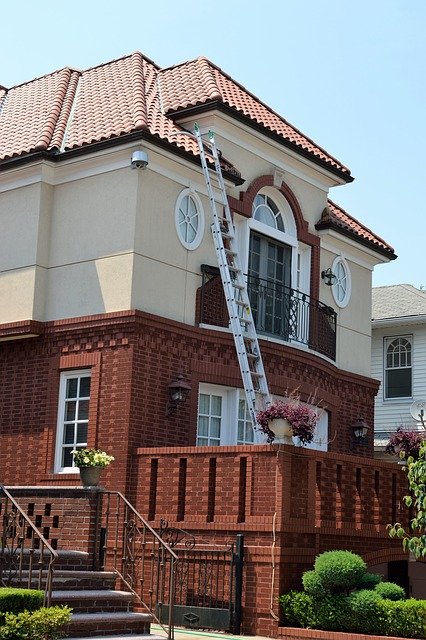What Does It Mean Interest Only?
Let’s go over an example. Let’s say the loan is for $100,000. Let’s say the interest rate is 10% just to keep the math simple for now. You take the loan amount of $100,000 x 10% (interest rate) = $10,000. This is the total amount of interest for the year. Take $10,000 and divide it by 12 (months) = $833.33 your monthly interest only payment. Interest only means that when you make payments each month, none of that amount is going to your principal amount. Rather, it’s only paying the interest.
Why Would Someone Want an Interest Only Loan?
These types of loans are meant to be more “flexible” than traditional bank loans and to provide a “bridge” from the time the property is acquired to the time it’s sold or “exited.” Sometimes these loans are called bridge loans because they are short term loans that help a real estate investor purchase a property with less out of pocket costs than using all of his or her own capital. These loans are more flexible and are designed for these types of transactions. Most of the time rehab or renovation funds are given to the borrower.

How Does a Bridge Loan or Fix and Flip Loan Work?
Let’s continue using our example from above. Let’s say the total amount needed to remodel or “rehab” the property will be $20,000. Usually the hard money lender will give 100% of the rehab or renovation funds. But, what does that mean? Does that mean that they will give all of the renovation funds upfront? No.
The rehab or renovation funds are usually based on “completed work.” Meaning the real estate investor starts the work or remodel. Completes some work. Pays for it out of pocket first. Then requests a “draw.” The work is usually inspected by a third party. This third party company then issues a report with photos to the hard money lender. Then the amount of the draw is usually wired to the borrower. The real estate investor then continues the remodeling process and requests another draw or draws by repeating the same process.
These loans are based on the value of the property. A loan-to-value or LTV is given against the property. Personal credit and track record or relevant experience are determining factors when a hard money lender decides to offer “terms” to the borrower. The borrowers personal credit isn’t as much of a determining factor when deciding if a borrower will be approved for a loan. The personal credit of the borrower is usually a guiding factor. The personal credit can affect the “rate” or interest rate that the borrower receives.
These types of loans are very common for “flippers” also known as “house flippers”. Real estate investors who usually purchase a single family home ranging between one to four units on average. They acquire a SFR or single family home that is distressed or needs remodeling. These house flippers then remodel the property and sell for market price once the remodel is completed. This is the reason why the industry standard length of time for these loans is usually 12 months. This gives the “flipper” time to purchase, renovate the property, and then sell.
Why Would You Want a Loan Like This?
When an investor flips a house he or she is willing to pay a higher interest rate for the use of this type of loan because the terms for this type of loan benefit the borrower. The flexibility of these loans assist the borrower with purchasing, completing the renovation, and selling the property. These types of loans also require a lot less paperwork than traditional bank loans.
An important part of the success for many real estate investors is for their lender to close quickly. Many times finding a great deal requires the investor to close on the property quickly. This is where these types of loans come in. It allows the borrower to acquire the property quickly and to use less if his or hers own capital to do so. The Loan to Value or LTV given by hard money lenders varies. Usually it is somewhere between 70 to 90% of the purchase price.
The determining factors which can affect the LTV or loan to value given would be the real estate investor’s past “proven” experience in flipping properties. Meaning how many past flips has a borrower completed and “when” where they carried out. Another factor that can determine the amount of capital the lender will give is the borrowers personal credit score. For example a borrower who has flipped 5 properties and has a mid credit score of 700 would usually receive a higher loan to value or LTV than someone who has never completed a flip and has a personal credit score of 500.
Let’s use the example above with a $100,000 purchase price and a renovation amount of $20,000. Let’s say the lender will give 80% of the purchase price plus 100% of the rehab or renovation funds. This would mean an initial purchase loan of $80,000 + $20,000 (rehab) = Total loan amount of $100,000. Remember in most cases the rehab funds will be “draw bases” or based on completed work; meaning reimbursed.
Usually the first monthly interest only payment will be auto-debited out of the borrower’s bank account approximately 30 to 45 days after closing. An interest only payment will follow monthly around the same time of the month until the loan is paid off. Most lenders who offer these loans have “No prepayment penalty.” This means if the borrower pays off the loan early there would be no penalty for doing so.

How Do Hard Money Loans Work
Optimus Capital bridge loans allow borrowers to purchase, finance, and acquire solid single family property deals which they intend to remodel the properties. Optimus Capital allows them to save money with lower interest rates and reduced fees.
Optimus Capital hard money loans work by allowing flexibility, lower rates and higher rates of return because of our institutional level investing and customer-centric investor mindset. The more money we can save you in finance charges, the more you have to invest.
Our Founders, being real estate investors, understand that when an investment opportunity presents itself that capital is necessary and we want to empower you. Optimus Capital Loans give you the flexibility with excellent terms, often lower than what’s offered by many lenders.
Optimus Capital is a full-service direct hard money lender and we can streamline all your Single Family Loans to assist you in building your real estate portfolio.
We are here to assist you during this time. We are still closing on loans during COVID-19. Our team is working diligently daily to assist our borrowers. We look forward to closing your deals quickly and efficiently during this time.
Disclaimer: The above is provided for informational purposes only and should not be considered tax, savings, financial, or legal advice. Please consult your tax advisor. All calculations and information shown here are for illustrative purposes only. All third parties listed above are for demonstration purposes only.

